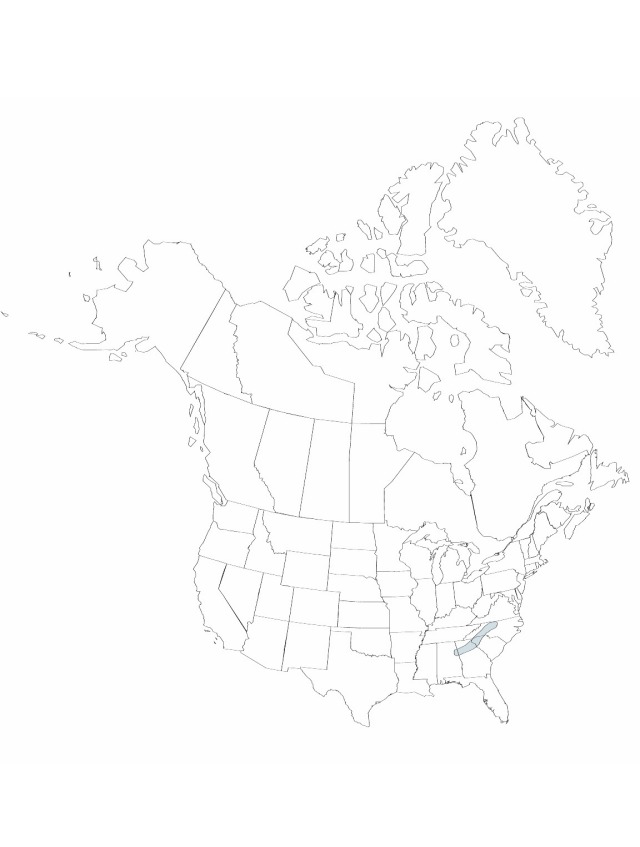Juncus georgianus
Bulletin of the Torrey Botanical Club 22:44. 1895.
Herbs, short-lived perennial, cespitose, to 4 dm. Culms 3–40. Leaves basal, 2–3; auricles 0.2–0.3 mm, scarious to membranous; blade flat, 5–15 cm × 0.4–0.7 mm, margins entire. Inflorescences (3–)8–30(–45)-flowered, diffuse, 3–11 cm; primary bract rarely surpassing inflorescence. Flowers: bracteoles 2; tepals greenish to tan, lanceolate, (3.3–)3.6–5.1(–5.7) mm; outer and inner series nearly equal, apex acuminate; stamens 6, filaments 0.2–0.4 mm, anthers (0.8–)1.2–1.5(–1.7) mm; style 0.6–0.8 mm. Capsules tan, 3-locular, ellipsoid to narrowly so, 2.7–4 × 1.2–1.7 mm. Seeds tan, ellipsoid or widely so, 0.364–0.45 mm, not tailed. 2n = ca. 80.
Phenology: Flowering and fruiting spring.
Habitat: Exposed sites with thin, usually sandy soil over surfacing granite (flatrocks), the soil in these areas may be moist in the spring from seepage or for a short period after rainfalls
Elevation: 300–600 m
Distribution

Ala., Ga., N.C., S.C.
Discussion
Selected References
None.
Lower Taxa
None.
... more about "Juncus georgianus"
Georgia rush +
Exposed sites with thin, usually sandy soil over surfacing granite (flatrocks), the soil in these areas may be moist in the spring from seepage or for a short period after rainfalls +
Bulletin of the Torrey Botanical Club +
1895 +
Endemic +
Juncus georgianus +
Juncus subg. Poiophylli +
species +